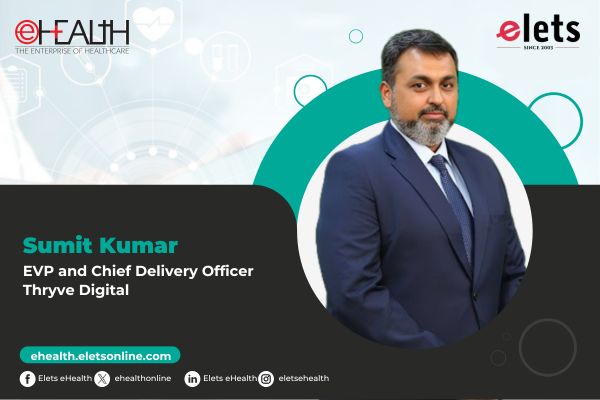
The panel on “Catering to the Present & Future Healthcare Infrastructure Challenges” focused on addressing the current and future challenges faced by healthcare infrastructure at Elets Global Healthcare Summit & Awards on 20 March 2023 at Millennium Plaza Downtown Hotel, Dubai. The session brought together leaders from the healthcare industry who discussed the innovative solutions and strategies that can be adopted to improve healthcare delivery. Edited excerpts:
Dr Fatih Mehmet, CEO, Fakeeh University Hospital

Primary health care has been a longstanding issue in many countries, including Saudi Arabia. Historically, when families and citizens had health concerns, they would immediately go to the emergency department of a hospital, regardless of the severity of their illness or injury. This led to an overwhelming amount of patients and an unsustainable burden on emergency departments, resulting in long wait times, overcrowding, and increased healthcare costs.

He added, “However, in recent years, the concept of primary health care has gained more attention and importance. It serves as the main gateway and the first point of contact for patients before they are referred to a hospital. The goal of primary health care is to provide patients with access to basic medical services, such as check-ups, vaccinations, and treatments for common illnesses like flu and coughs.”

Saudi Arabia has made significant progress in expanding its primary healthcare system. The government has established over two and a half thousand primary healthcare centers, with plans for further expansion. Additionally, the government is working on a private-public partnership to operate 100 to 150 primary healthcare centers through private partners.

Furthermore, the government has allowed the private sector to establish emergency clinics in small neighborhoods. These clinics are much smaller than primary health care centers, around 200 square meters, and provide basic medical services such as stitching for injuries. These clinics also offer home health care services to reduce the burden on hospitals.
He further stated, “The expansion of primary health care services is crucial, particularly given Saudi Arabia’s plan to increase its population from 8 million to 15 million in the coming years. The existing healthcare infrastructure needs to be doubled to accommodate this growth.”
“Another significant issue that Saudi Arabia faces is the length of hospital stays. Studies have shown that with the right software and management, the length of hospital stays can be significantly reduced. This is an essential area to address, as reducing hospital stays by even 10% can free up hundreds of beds in hospitals and decrease healthcare costs”, he concluded.
Vijay Dhawangale, Founder & Chairman, Lifenity International
The United Arab Emirates (UAE) has been making strides in healthcare infrastructure and technology in recent years. The country has been investing heavily in its healthcare sector, with 4.5 per cent of its GDP allocated to it. The number of beds per thousand people in the UAE is around 1.5, which is quite high compared to other countries. Additionally, the nursing staff to population ratio in the UAE is 5.7 percent, which is equivalent to that of most developed countries.
“Despite these impressive statistics, UAE is facing significant challenges in the healthcare sector. Non-communicable diseases such as diabetes, cardiovascular disease, and cancer are becoming increasingly prevalent in the region. Two-thirds of the deaths in the UAE are due to cardiovascular disease, and diabetes is the second leading cause of death. Oncology, or cancer, is the third leading cause of death in the country”, he averred.
He further stated, “One of the major challenges that the UAE is currently facing is the influx of people moving to the country. The UAE is known for offering the best infrastructure for living and entertainment, and as a result, the population is expected to increase by almost 20 per cent in the next 10 years. This will require significant investment in infrastructure, which can be quite costly.”
However, UAE is looking to technology as an alternative to building more infrastructure. By using technology to manage diseases more effectively, the country can reduce the burden on its healthcare system. For instance, early detection of diseases through genomic testing can help manage diseases more effectively. The UAE has already started genomic sequencing for all its citizens, making it the first country to do so. This technology can be used to educate people about their health and provide them with personalized care plans.”
He concluded, “UAE is looking to provide more home care solutions to manage the increasing number of elderly citizens. The country is expected to have a significant increase in its elderly population in the coming years. To manage their health effectively, the UAE is exploring the use of health managers, who can help people manage their health from home. This can help reduce the burden on hospitals and provide more personalized care to patients.”
Bruno D Souza, Chief Operating Officer – Dubai & Northern Emirates, Burjeel Holdings
He commenced the session by stating, “Over the years, UAE has made remarkable progress in various sectors, including healthcare. The country has grown by leaps and bounds since the 1990s, when healthcare was just setting in, and there were very few healthcare providers. Today, the healthcare industry has grown tremendously, with numerous private healthcare providers offering quality healthcare services to the people.”
Despite this growth, one major challenge that comes with a growing economy is providing quality healthcare while managing costs. If costs are not managed, premiums will rise, and individual companies may cut down on premiums, eventually hurting employees, especially those who need chronic medications, long-term care, or emergency services.
Private healthcare providers in UAE are always trying to reduce costs, manage patient expectations, and adopt newer technologies, including Artificial Intelligence (AI).
He added, “Retaining talent is another challenge in the UAE’s healthcare industry. Many trained and competent healthcare professionals prefer to go abroad, including to European countries, where they can earn more. However, the COVID-19 pandemic has shown the world that the UAE is a competitive destination, and many professionals have found employment in the country.”
“The UAE government is proactive in implementing regulatory initiatives that promote innovation and technology in the healthcare industry. For example, the Dubai Health Authority has the D33 initiative that seeks to leverage technology to improve healthcare services in the country. The UAE’s healthcare industry is continuously evolving, and innovation is the way forward”, he concluded.
Dr Chiranjeev Dwivedi, Associate Director, PwC
Value-based care has become a hot topic in healthcare circles in recent years, and for good reason. The traditional model of healthcare delivery, where payment is based on the number of services provided, has been shown to result in higher costs and lower quality outcomes for patients. The shift to value-based care is aimed at improving outcomes while reducing costs, but this requires a fundamental change in the way we think about healthcare delivery.
He stated, “At the heart of value-based care is the idea that payment should be based on the value that is delivered to patients, rather than the volume of services provided. This means that providers are incentivised to focus on improving outcomes and reducing costs, rather than simply providing more services. This requires a shift in mindset, from one that focuses on maximizing revenue to one that focuses on delivering high-quality care.”
“One way to achieve this shift is through payment reforms and new reimbursement models. For example, in the wake of the COVID-19 pandemic, mental health has been a major focus, and there are various reimbursement models that could be used to bring mental health programs into the mainstream. By leveraging these models, mental health providers can be incentivized to focus on delivering high-quality care that improves outcomes for patients while reducing costs”, he added.
Of course, payment reforms alone are not enough to achieve value-based care. It requires a whole system approach that focuses on quality, infrastructure, and patient outcomes. This includes investing in technology that can help providers deliver care more efficiently and effectively, as well as promoting preventive care and early intervention to avoid costly treatments down the line, he concluded.
Be a part of Elets Collaborative Initiatives. Join Us for Upcoming Events and explore business opportunities. Like us on Facebook , connect with us on LinkedIn and follow us on Twitter , Instagram.
"Exciting news! Elets technomedia is now on WhatsApp Channels Subscribe today by clicking the link and stay updated with the latest insights!" Click here!
















